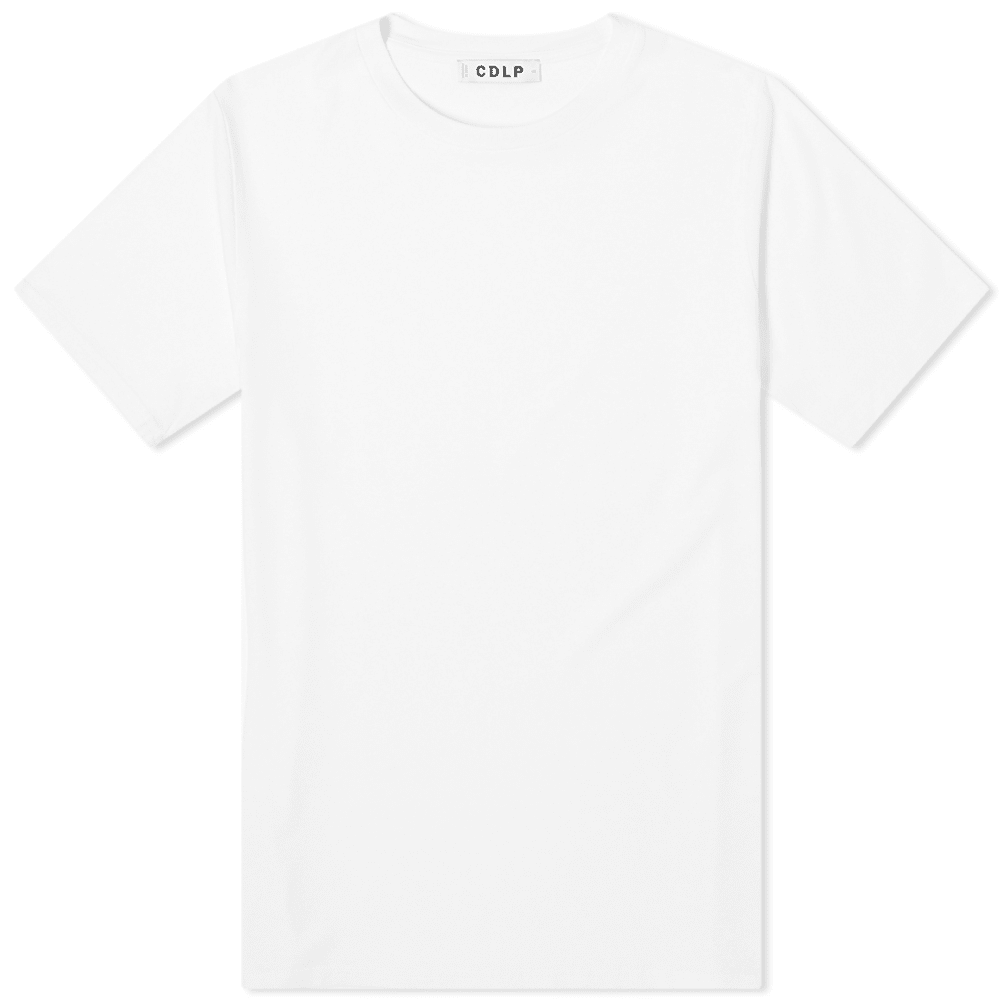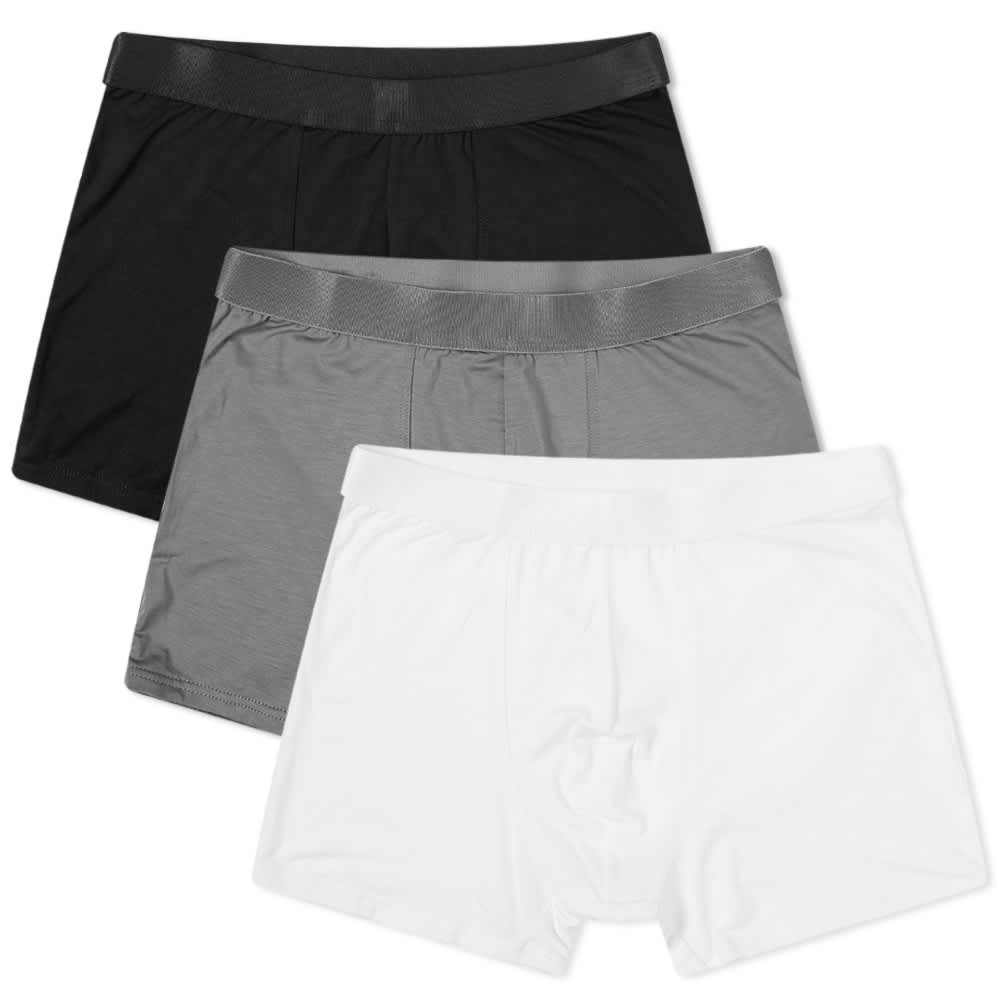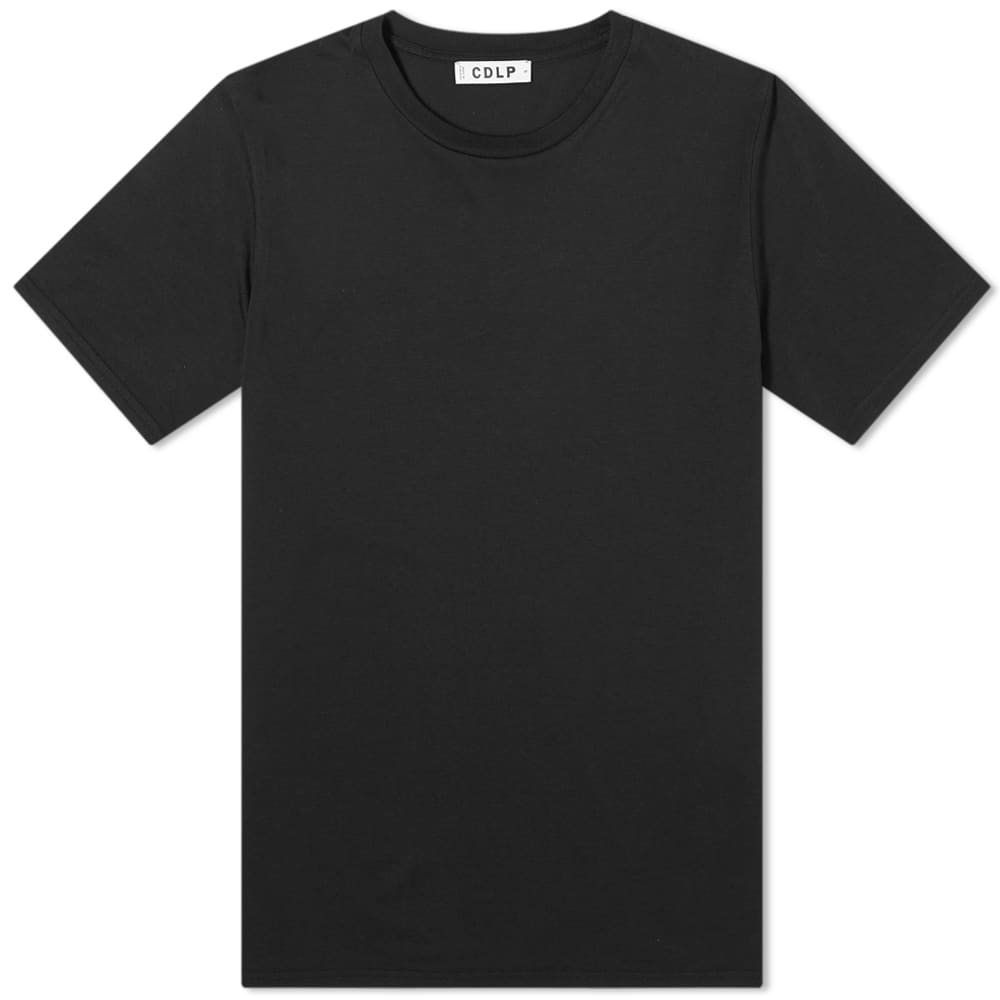We noticed you are in United States (US), would you like to move to our US store?
Redefining Masculinity with CDLP
18 September 2020Instigating a boxer rebellion with their fresh approach to men's essentials, END. sits down with CDLP founders Christian Larson and Andreas Palm to talk design and development, disrupting a market long-left forgotten, and presenting a masculinity real men can relate to.
Taking internationally revered Scandi design ideals and applying them to a product category long-left forgotten - men's underwear - CDLP is a company which wears its heart on its briefs. Dedicated to levelling-up men's essentials, portraying an intellectual and multi-faceted expression of contemporary masculinity, and doing it all with a responsibility to the planet and its inhabitants in mind, CDLP is a lifestyle brand for a new type of man.
Founded in 2016 by friends Christian Larson and Andreas Palm, like all the best companies CDLP was built to solve a problem. Disappointed with the cookie-cutter cotton briefs and waistband logomania which had dominated the men's underwear market for decades, CDLP has set a new bar for men getting dressed; building from the foundation out to create a line of menswear essentials with quality which reflects the intimate nature of our relationship with them. After all, if something is touching your skin, shouldn't it feel good?
What started as a singular mission to provide better options to an underserved market quickly segued into a larger manifesto focused on redefining contemporary masculinity, presenting men as something multi-faceted, intellectual, and varied. From eschewing the traditional ad-campaigns and hyper-sexualised imagery to taking resolute and meaningful decisions in their design and manufacturing processes to create a brand and a product their customers can truly feel good about, Christian and Andreas are introducing true luxury to your underwear drawer - a luxury that goes beyond a brand name on a waistband.
Sitting down with Christian and Andreas, END. dives deep on a story of Swedish design, Portuguese craft, and global luxury appeal setting CDLP apart as an essentials brand for grown-ups.
The brand was founded on this idea of instigating a boxer rebellion - where did the desire to lead this change come from?
Christian: Andreas and I were doing a bunch of travelling together and when you're on the road, you begin to value certain pieces in your luggage and start to put more emphasis on certain garments. Underwear was the missing link: the item which didn’t live up to our expectations. When we looked into it, we were surprised that it was such a dated product and it hadn’t been developed for so long. The market was completely dominated by these mass-market brands and no one had really taken underwear for men and reinvented it in any way.
Andreas: We didn’t like the product that was out there. We didn’t like how the product was presented; the men it was presented on. We felt like we couldn’t really relate to that and that there should be more options in the market for men’s essentials.
Christian: I was a film director and photographer at the time and had just shot a women’s underwear campaign and when we looked at the contrast between how men and women choose and wear underwear it was clear that for women it can be an emotional purchase and experience but as a man, it’s always been seen as a necessity and that's it. We both felt ‘why can’t we as men feel sexy about underwear or have an emotional attachment to the underwear we wear, wouldn’t that be nice?’ so that’s where we started.
Why do you think it took so long for someone to disrupt the status quo?
Christian: I think it’s purely down to the fact that the traditional men’s underwear market was completely dominated by big labels and high street brands dominating the space entirely.
Andreas: Most men didn’t see underwear as part of their overall outfit or integrate it into their routine of getting dressed. A lot of men we spoke to were disappointed by the options in the marketplace but just settled for less than they wanted. The reaction we had to the product when we first released was that men had been waiting for something like CDLP to take men’s underwear seriously and develop and produce a better product. Men wanted something more, but the alternatives weren’t there for them.
CDLP is all about instilling new habits and ideas around men’s underwear. What are some of the cardinal sins men commit when it comes to their essentials or the missed opportunities you wanted to address?
Christian: Essentials and basics don’t have to be boring; they should be exciting because we wear them 24/7 and I think there’s a missed opportunity in general by men to pay more attention to these items we wear every day. I’d say men's relationship with choosing a style of underwear is also an issue. Every season it seems like all the traditional men’s magazine will run stories along the lines of ‘What style are you? Are you a boxer or a briefs man?’ and both of us just thought ‘I’m not either of those, why can’t it be a daily choice based on emotion or style?’ Since we started CDLP, we both have a wardrobe of underwear, more akin to what a woman would traditionally have. It just makes things more exciting in the morning and it makes it more comfortable. If it’s a warm day outside I’ll wear boxer shorts; if I’m wearing tighter pants to go out in I’ll wear a pair of briefs.
Andreas: The critical issue for us is men not seeing underwear as a part of their outfit. You see so many men investing in these amazing Dries Van Noten outfits or whatever it is they like to wear and then you see the waistband of their underwear pop out and it’s this huge logo with a stark colour contrast which messes up their whole look. You lose the sense of refinement and the effort you've put into the rest of your style because the importance of building an outfit from the base up has been disregarded.
A lot of the CDLP narrative centres on the idea of honouring the ritualistic ideals around getting dressed that we’re losing as menswear has moved away from sartorialism. Why is it important to bring these rituals back?
Andreas: Fabric and fit make a huge difference when it comes to underwear and other essentials and I think most men aren’t used to having that sensation. Putting something on as the first garment - whether that’s socks or underwear – and having it fit really well and be great quality material; it starts something off early in the dressing ritual and it starts your day right.
Christian: Essentials should be special. They should be something you really care about and let build the foundation of your style, whether you’re into streetwear or prefer more tailored clothing. What’s going on underneath is important and having that ritual around getting dressed matters.
The product is all designed in Sweden and manufactured in Portugal using techniques borrowed from tailoring to create fits which last. Did keeping the design and manufacture close to home matter when starting the brand?
Christian: 100% - for us we come from the world of H&M and we don’t believe in the philosophy of these mass-production companies. We grew up around it and we don’t stand by it. We believe in having more control, having more love for your product, and in taking our responsibility really seriously. For us, that meant keeping things close to home. We design everything in Stockholm and then manufacture everything with people we know and have close relationships with in Portugal.
Andreas: Designing and manufacturing as we do stands out within the underwear industry because almost all mass-production underwear lines are manufactured in China. We went to China and visited the factories producing these other brands and we just knew that if we were going to do something different, that was not the route for us. We don’t need to go into detail or throw anyone under the bus, but mass-manufacturing can be a pretty horrible industry and we’re confident that the way we’re doing it is an improvement. We didn’t want to exclude the idea of using China without doing our own research and visiting ourselves and as soon as we got there it was an easy decision to choose Portugal.
Let’s talk materials. The underwear is all crafted from Lyocell as opposed to cotton. Why Lyocell?
Christian: It goes back to the fact that we wanted to disrupt this industry and introduce this sense of ritual and that all comes down to the product. In the world, one thing we don’t need is more brands doing the same thing. When we set out to start something new, it was important for us to take responsibility for that and ensure that what we create is something that’s not already available. We only work with essentials, we don’t do seasonal collections. Our garments are necessities, but we’re making the very best of them and considering everything: quality, how they’re cared for, sustainability, responsibility. We looked at so many options and Lyocell not only solves the issue of sustainability, but it’s also better than the convention which is cotton. It’s better than cotton; it feels nicer than cotton; it holds colour better than cotton; it’s anti-bacterial. It was a given to use Lyocell.
The visual identity of CDLP offers up a nuanced portrayal of contemporary masculinity versus the big logo-driven boxer brands which tend to market with actors or athletes. Talk to us about this more realistic expression of the modern man?
Christian: It was very simple for us: we didn’t relate to what we were seeing in the market. It didn’t appeal to us, it didn’t inspire us, we couldn’t see ourselves in those campaigns or ads. At CDLP we’ve tried to portray a masculinity that we look up to and can aspire to. That means a wider variety of age, style, and body types. We wanted to build a brand that was interesting aesthetically but that was honest and reflected our story. We shoot a lot of our campaigns with our friends. It feels personal and I think that resonates.
Andreas: It portrays a modern masculinity which real men can relate to. The status quo of how brands sell men's underwear using athletes is so predictable.
Christian: For us, CDLP was never just an underwear brand. It’s an essentials brand and we’ve always had plans to do other things. We want to look at a range of products with the same rebellious attitude that we did initially with the underwear collection and to be a bit of an antidote to the issues we’ve found. CDLP is a lifestyle brand and we’re proud of our perspective on masculinity and style. When you work with essentials it’s easy that all the communication and messaging becomes boring, or if you’re trying to be ethical and responsible it’s easy for all your conversations to be focused on that topic. We’ve just tried to create an exciting brand with a clear point of view.






















